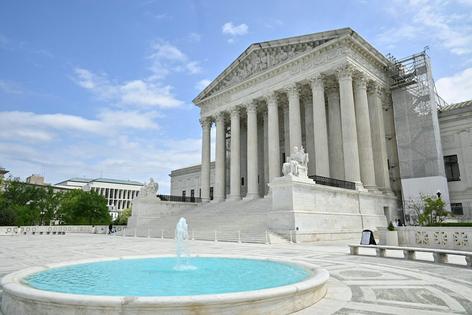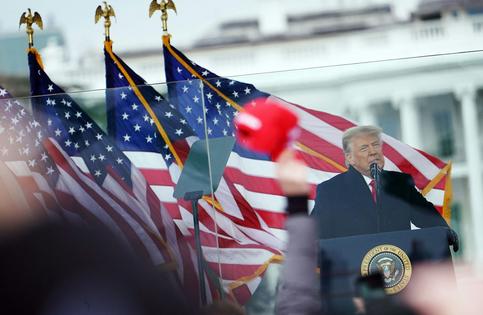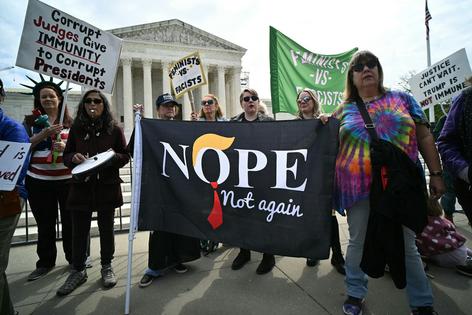Trump’s immunity arguments at Supreme Court highlight dangers − while prosecutors stress larger danger of removing legal accountability
Published in News & Features
The U.S. Supreme Court heard oral arguments on April 25, 2024, in a case that will change the course of American history. That case is Trump v. United States, in which the justices have been asked to decide whether and to what extent former President Donald Trump – or any president – can be criminally prosecuted for actions taken while in office.
The case specifically relates to special counsel Jack Smith’s charges that Trump attempted to subvert the 2020 presidential election. But the court’s decision will also apply to larger questions about the limits of presidential power and the role of the legal system in constraining executive actions.
Politics editor Naomi Schalit interviewed constitutional law scholar Claire Wofford, a political scientist at the College of Charleston, who said the implications of the case went beyond Trump’s case to “how future presidencies might operate.”
Justice Neil Gorsuch said, “We’re writing a rule for the ages.” The justices seemed very aware that the case in front of them was about former President Donald Trump, but it was about much more than that as well, wasn’t it?
I would absolutely agree with that. The justices raised a variety of concerns about the implications of deciding this case. Several of the justices, across the ideological spectrum, were very concerned about the practical implications of allowing a president to have immunity to some extent, or not allowing the president to have immunity.
Justice Samuel Alito seemed really concerned about the president being subject to political prosecution if he were not protected by immunity. Alito spoke of the president being in a “peculiarly precarious position.” Justice Brett Kavanaugh seemed to also be concerned with implications of a finding of no presidential immunity, raising the specter of what he called “cycles” of prosecutions.
On the flip side, several of the more liberal justices, like Ketanji Brown Jackson and Elena Kagan, raised the question of what would it mean if the president did have immunity – whether it would mean an unbounded executive. Jackson, in particular, talked about how we shouldn’t be concerned that the president would be chilled in his actions if he were potentially subject to prosecution.
“I think we would have a significant opposite problem if the president wasn’t chilled,” she said. She said a president could enter office “knowing that there would be no potential penalty for committing crimes.” She said, “I’m trying to understand what the disincentive is from turning the Oval Office into the seat of criminal activity in this country.”
It seemed like everyone, from the attorneys for Trump and the Department of Justice to the justices themselves, wanted to find some middle ground where there was some, but not total, immunity for the president.
It didn’t seem to me that any of the justices want to conclude that the president is absolutely immune or that the president can always be criminally prosecuted. There’s going to be some gray area where some of what a president does can be subject to prosecution and some of what he does cannot. There was a lot of back and forth about what line would be drawn.
...continued













Comments